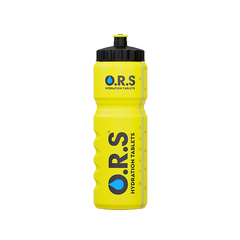Essential Strategies To Avoid Dehydration When Travelling

Many of us will be off on our travels over the next few weeks, whether it’s to explore exotic and far-flung corners of the globe, or simply have a few days in the sunshine in warmer climes than the UK. It’s an exciting time, and to make the most of it you will want to make sure you stay safe and well.
If you are packing for a big trip, then managing your fluid intake probably isn’t the uppermost concern on your mind. However, aeroplane cabins can be very dry due to the constant air circulation system, with humidity levels much lower than we are accustomed to. This means that we lose more water through evaporation when we breathe.
The disruption to normal eating and drinking habits, or deliberately limiting fluid intake to minimise trips to the loo, can mean that we are much more prone to dehydration than usual.
This can lead to unwelcome side effects including headaches, fatigue, dizzy spells, chapped lips, dry eyes and slower cognitive function; none of which you want to be dealing with when you land in a foreign country. Here are some strategies to maintain optimum hydration levels on your travels.
Top up before you set off
It might be tempting to drink less before your journey to avoid an inconveniently full bladder, but it’s important to start off well hydrated. Drink small regular amounts rather than large volumes in one go, which are more likely to result in a trip to the loo.
Take a refillable water bottle with you
A lightweight refillable water bottle that fits conveniently in your hand luggage will be your trusty travel companion. It will save you the hassle of buying expensive drinks at the airport, and the flight attendants will usually be happy to top it up if you are on a long-haul flight.
Make use of rehydration tablets
Rehydration tablets can easily be added to your water. They will help your body to absorb and retain fluids more efficiently, and also replace essential vitamins and minerals, known as electrolytes, that are lost through bodily fluids.
Use digital trackers
When we are travelling, it’s easy to become distracted by what’s going on around you or just feel a little disoriented and adrift from your usual routine. This can make it more difficult to keep track of your fluid intake. It may be helpful to use a digital app to monitor your fluid levels and prompt you to drink at regular intervals.
Eat plenty of fruit and vegetables
Avoid snacks that are high in salt and sugar and can lead to extra thirst. Instead, pick fruits and vegetables with a high water content, such as citrus fruits, watermelon, strawberries, cucumbers, and celery sticks. However, be aware of the airline weight restrictions on carrying raw foods as they may breach rules on the import of seeds or produce.
If in doubt, top up on fruit and other water-rich foods at the airport, and choose sensible healthy options if you are offered in-flight meals and snacks. This will not only help to stave off thirst, but also keep your energy levels consistent so that you are ready and in the best shape to deal with the process of managing the next stage of your journey.
Avoid too much alcohol and caffeine
It may be tempting to take advantage of the in-flight beverage trolley, but excess alcohol or caffeinated drinks can soon dry out your mouth and prompt a trip to the toilet, heightening the risk of dehydration. Try to alternate these drinks with water, or avoid them completely.
Plan ahead for your destination
If you are travelling to a hot climate where access to clean drinking water may be limited, pack a portable water filter and water purification tablets to ensure that you do not take any risks.
Listen to your body
The signs of dehydration include a dry mouth, headache, urine that is darker coloured than normal, and excessive tiredness. Take action to rehydrate as soon as you notice any of these symptoms.
If you are prone to dry skin, pack a facial mist spray, lip balm and hand cream in your hand luggage to keep you feeling comfortable. Eye drops can provide relief for dry, irritated eyes that can be the result of low humidity or allergies.

